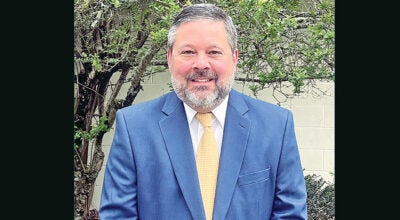Medicare already rolling out changes for seniors
Published 10:03 am Wednesday, July 7, 2010
The widely debated healthcare reform is starting to show the first signs of change.
The Area Agency on Aging District 7 is spreading the word to seniors in southern Ohio about the upcoming changes to Medicare.
The Centers for Medicare and Medicaid Services is also sending out a mailing called “Medicare and the New Health Law- What it Means to You”.
The brochure outlines the key points to the new Affordable Care Act that was put into law on March 23.
“The Area Agency on Aging District 7 has long advocated for adequate services and supports for seniors and those with disabilities,” said Pamela K. Matura, Executive Director of AAA7.
One of the new changes in Medicare will be phasing out the donut hole in the Part D prescription plan.
The donut hole is a gap in prescription drug coverage that forces beneficiaries to pay the entire cost of their medications while at the same time, paying their full Part D premium.
The Affordable Care Act says that if a senior falls into the gap this year, they will receive a $250 rebate.
Starting in 2011, seniors who fall into the gap will receive a 50 percent discount. By 2020, the donut hole will be eliminated.
Another change will be, starting in January 2011, preventative services will be free, along with free annual check-ups.
“Preventative measures regarding health and wellness have always served an important action in improving individual health. Fortunately for seniors, changes coming with the new healthcare law will cover preventative services in order to make available important screenings and annual check-ups that help seniors maintain healthy living longer,” said Matura.
“The Area Agency on Aging is very pleased that seniors will now have better access to preventative care which aids in the promotion of longer and healthier lives.”
Some of the preventative screenings that will be available for free are for bone density, cholesterol, prostate cancer, diabetes, breast cancer and colon cancer.
“The new law recognizes that seniors want to ‘age in place’ by promoting and making accessible these important preventative services that can only bring about a positive impact on chronic health conditions for seniors,” Matura also said.
Further changes to Medicare would eliminate overpayments in Medicare Advantage Plans to create new incentives for coordinated, quality care across the healthcare spectrum.
The new law also extends the solvency of the Medicare Trust Fund by nine years.
Last week, some seniors got together at the Ironton Senior’s Center to discuss some of the changes.
Carol Horner, Judy Mills, Doris Roberts, Thomas W. Hatfield and several others who wanted to remain anonymous gave their thoughts on the state of healthcare and the new changes. Although none of the seniors present said they are dissatisfied with their current Medicare plans, they are distrustful of the changes to come, and the cost they might incur.
“It’s scary,” said Mills.
“They just want to tell you the good things, and leave out the bad parts,” said an anonymous senior.
“They’re lying,” said Hatfield.
Hatfield is one of many who are afraid that when the changes go through, they will lose their rights as patients and be at the mercy of a government-run program.
Kathy Keller, communications director at the AARP Ohio office, said that the changes that are taking place are only to benefit seniors.
“More than 45 million Americans have Medicare,” said Keller. “We know that most people need help understanding the changes.”
Keller also said that patients would still get to make all their own decisions and keep their own doctors.
“Nobody’s telling you what to do between you and your doctor,” she said.
Keller also said that “the monthly premiums are not determined by this health law.”
The AARP’s website is explains the changes as well. Their web address, www.aarp.org/getthefacts has downloadable facts sheets that explain the details. Some of the fact sheets are “How the New Law Benefits You,” “What the Law Means for People Age 65+” and “What the Law Means for Nursing Home Care.”
Keller also said that AARP volunteers could do presentations to help further explain the changes to Medicare and the Affordable Care Act. To set up a seminar, call their toll free number 1-866-389-5653.
On June 8, President Barack Obama gave a Tele-Town Hall meeting with seniors at the Holiday Park Multipurpose Senior Center in Wheaton, Md.
“This new law gives seniors and their families greater savings, better benefits and higher-quality health care. That’s why it ensures accountability throughout the system so that seniors have greater control over the care that they receive. And that’s why it keeps Medicare strong and solvent – today and tomorrow.”
For more information, call 1-800-MEDICARE or visit their website www.medicare.gov. The government also has a new website, www.healthcare.gov.





